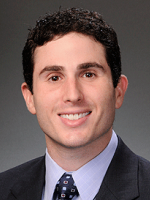California Labor Code section 226 requires employers to provide accurate wage statements, and enumerates specific requirements for such wage statements. The statute also provides for penalties should an employer violate section 226, and allows a prevailing employee to recover attorneys’ fees in connection with prosecuting claims for alleged wage statement violations.
On May 6, 2014, California’s Assembly on Judiciary heard arguments concerning Assembly Bill 2095, a proposed amendment to Labor Code section 226(h)’s attorneys’ fees provision, which would amend section 226(h) to provide a two-way fee shifting provision. Under the proposed amendment, employers who successfully defend against a frivolous wage statement claim could recover their attorneys’ fees in doing so. Supporters of AB 2095 contend the amendment is necessary to help deter bad faith claims for alleged technical violations of Labor Code section 226 that do not cause any injury to the employee. The bill’s supporters cite, for example, to a 2010 case in which the alleged violation was the employer’s use of a truncated name on employees’ wage statements. Although the claim was dismissed on summary judgment, supporters of AB 2095 were disturbed by the unnecessary attorneys’ fees and costs the employer incurred to defend against the claim, prompting the proposed amendment. In contrast, opponents argue AB 2095 is unnecessary because the standard to show the requisite injury under Labor Code section 226 was heightened in 2012, and because a 2013 amendment to the Code of Civil Procedure already allows prevailing employers to recover attorneys’ fees in bad faith litigation.
Should AB 2095 pass, it would mark a small victory for California employers, as employees and their attorneys would have to carefully evaluate whether to bring a Labor Code section 226 wage statement claim for alleged “technical” violations that have not caused some notable injury.




 />i
/>i

